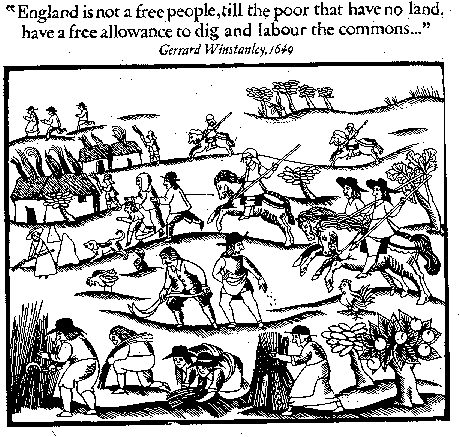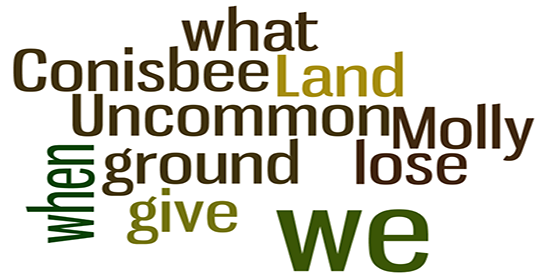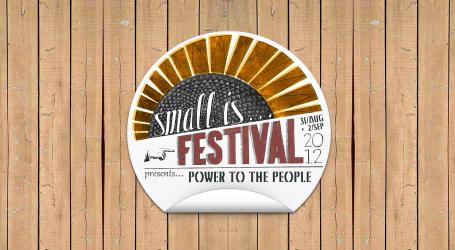Film of Molly Conisbee’s talk at Small is Beautiful Festival 2012.
From blog post by molly for festival of transition website:
“What do we lose when we lose access to the land? This is a question that has been asked for centuries, from the earliest protestors against the Acts of Enclosure in the twelfth century, to the Levellers and Diggers of the English Civil War; the right to roam activist groups of 1920s and 30s; to our own contemporary movements, who squat, occupy and guerrilla garden today.
 Our ancient common land, which was usually tied to a manor or other fiefdom, often had blurry ownership ‘rights’ attached, and its use for grazing, fishing and wood gathering formed part of the complicated web of interdependency that characterised the feudal system. The ensuing centuries-long ‘enclosure’ of this land, for sheep grazing, hunting, or to develop private estates, fostered some extraordinary acts of resistance – through poetry, art, political tracts and acts of vandalism. Enforced removal from the land, the companion to the growth of urban, industrial Britain, as land workers went from being ‘peasants’ to ‘proletariat’ has shaped our economy and our political consciousness ever since.
Our ancient common land, which was usually tied to a manor or other fiefdom, often had blurry ownership ‘rights’ attached, and its use for grazing, fishing and wood gathering formed part of the complicated web of interdependency that characterised the feudal system. The ensuing centuries-long ‘enclosure’ of this land, for sheep grazing, hunting, or to develop private estates, fostered some extraordinary acts of resistance – through poetry, art, political tracts and acts of vandalism. Enforced removal from the land, the companion to the growth of urban, industrial Britain, as land workers went from being ‘peasants’ to ‘proletariat’ has shaped our economy and our political consciousness ever since.
William Cobbett wrote about this in his ‘Rural Rides’ in the 1820s. Enclosure to him represented the disenfranchisement of the productive peasantry, who should be the backbone of any healthy economy. To tear communities away from their means of production, to make them dependent on the ‘tax eaters’ and unscrupulous merchants of the ‘Great Wen’ (as he called London) was to destroy all that was wholesome, independent and self-sufficient.
Land grabbing, in some ways the contemporary name for enclosure, continues to be a threat to individuals and communities worldwide; a new book by Fred Pearce on this topic documents these acts of social and economic hostility and their devastating human cost. Our own ‘Great Wen’ of unfettered corporate capitalism uproots communities, destroys subsistence and community-scale farming and exploits patchy legal processes and rights to do so.
This is not just a feature of the world’s small-scale farming communities. In urban areas we increasingly lose our right to roam, as developments for housing and business eat up spaces that were once footpaths and rights of way. And for me this is the nub of what we lose when we lose ground. Common land, rights of way and footpaths are important civic spaces. Whilst we may not need them to graze our geese or gather firewood these days, they are vital green lungs in cities and towns as well as the countryside, for leisure, exercise, engagement with the landscape and each other.
This year is the 80th anniversary of the Kinder Scout trespass, led by Benny Rothman, to highlight the fact that huge tracts of the countryside were closed off to walkers. It inspired the Rambler’s Association, which has since, and with some success, campaigned for access to footpaths and open access. Such activism should inform our great transition; a shift of mind-set that recognises that land is a shared resource, and a place of comings and goings together.”
More information:
Bread, print and roses blog Mollie writes for.
The Soil Association also has a blog by Molly.
Practical Action, the organisation that puts on the Small is festival
Check out more films here:


